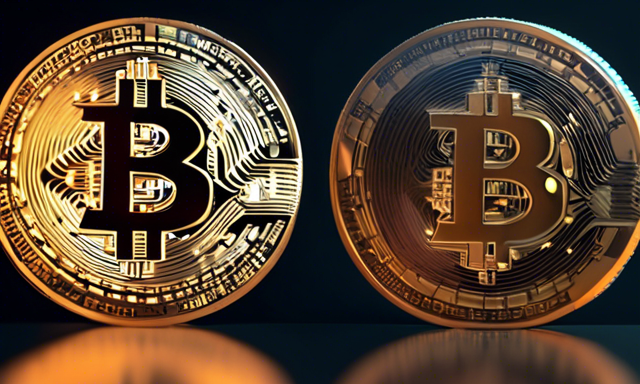The Rise and Revolution of Bitcoin: A Comprehensive Guide
Welcome to the world of Bitcoin, where digital currencies have sparked a revolution in the financial industry. If you’re curious about Bitcoin and want to understand its rise and potential, this comprehensive guide is for you.
Bitcoin, often referred to as the first cryptocurrency, was invented in 2008 by an unknown person or group of people using the pseudonym Satoshi Nakamoto. It is based on a disruptive technology called blockchain, which is a decentralized ledger that securely records transactions across multiple computers.
You might be wondering, why should I care about Bitcoin? Well, let’s dive into some of the reasons that make Bitcoin a revolutionary invention:
Financial Freedom and Control
When you use traditional financial institutions, they have control over your money – they can freeze your accounts, impose limits, and charge exorbitant transaction fees. Bitcoin, on the other hand, allows you to have complete control and ownership of your funds. No one can freeze your Bitcoin wallet or impose any limitations without your consent.
Furthermore, Bitcoin transactions are peer-to-peer, meaning you can directly send and receive funds without relying on intermediaries like banks or payment processors. This eliminates the need for third-party involvement and reduces transaction fees.
Security and Privacy
In the era of high-profile data breaches and privacy concerns, Bitcoin offers a level of security and anonymity that traditional banking systems fail to provide. Each transaction made with Bitcoin is recorded on the blockchain, which is transparent and accessible to anyone. However, the identities involved in the transactions are represented by cryptographic keys, ensuring privacy and preventing unauthorized access to personal information.
Additionally, the use of blockchain technology ensures that transactions are tamper-proof. Once a transaction is confirmed and added to the blockchain, it becomes virtually impossible to alter or manipulate the data.
Global Accessibility
Unlike traditional financial systems that require extensive documentation and intermediaries, Bitcoin is accessible to anyone with an internet connection. It doesn’t matter where you are in the world; as long as you have access to the internet, you can participate in the Bitcoin network.
This global accessibility has significant implications, especially for individuals in countries with limited access to banking services. Bitcoin provides the opportunity for financial inclusion, allowing people to transact and store value without relying on traditional banking infrastructures.
Investment Potential
Bitcoin has gained widespread attention as an investment asset, with its value experiencing significant ups and downs. While Bitcoin’s price can be volatile, many investors see it as a potential hedge against traditional fiat currencies and a store of value.
Furthermore, Bitcoin’s limited supply of 21 million coins creates scarcity, which can drive demand and potentially increase its value over time. This is in contrast to fiat currencies, which can be easily influenced by inflation and government policies.
FAQs about Bitcoin:
1. How can I acquire Bitcoin?
To acquire Bitcoin, you can purchase it from cryptocurrency exchanges using traditional currencies or trade it with someone who already owns Bitcoin. Alternatively, you can participate in the process called mining, where powerful computers solve complex mathematical problems to validate transactions and earn new Bitcoins.
2. Is Bitcoin legal?
Bitcoin’s legality varies across different countries. While some countries have embraced it and provided clear regulations, others have placed restrictions or banned its use. It’s crucial to research and understand the legal framework surrounding Bitcoin in your jurisdiction.
3. How do I store Bitcoin?
Bitcoin is stored in digital wallets, which can be software-based or hardware devices. Software wallets are applications installed on your computer or mobile phone, while hardware wallets are physical devices designed to securely store your Bitcoin offline.
Conclusion
Bitcoin has risen to prominence as a disruptive force in the financial industry, offering financial freedom, security, global accessibility, and investment potential. Its decentralized nature and utilization of blockchain technology make it a revolutionary innovation. As you explore the world of Bitcoin, remember to stay informed, secure your funds, and understand the legal implications in your jurisdiction.





 By
By
 By
By
 By
By
 By
By

 By
By